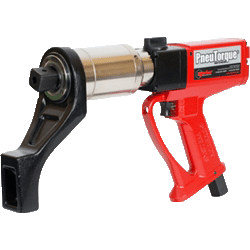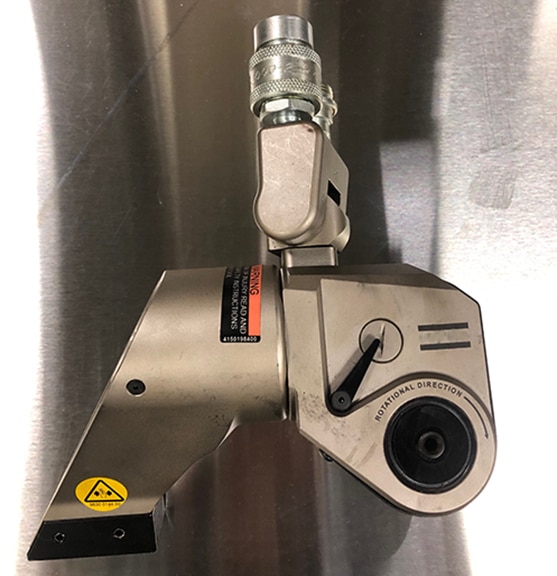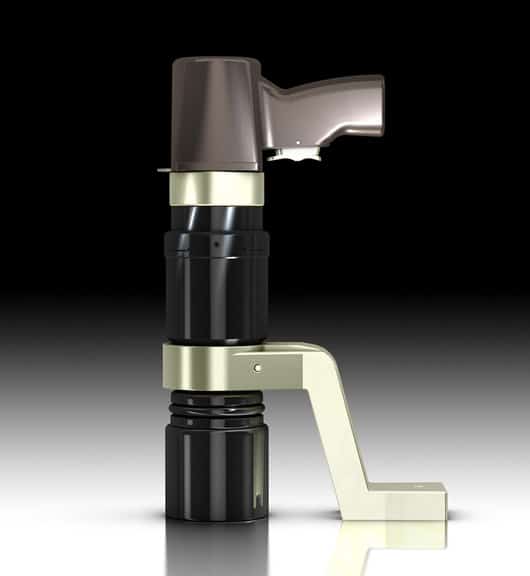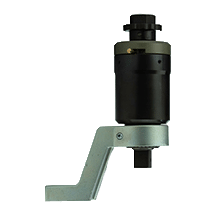What is a torque multiplier and when is it used?
Just as their name suggests, torque multipliers enable users to apply greater torque without requiring any additional strain on the operator. A multiplier may be required when a fastener is very large, or when an application requires high torque, but the workspace does not allow for the use of a larger torque wrench.
The use of torque multipliers can increase productivity & efficiency. By providing the operator with extra power, multipliers greatly reduce the amount of effort required to get fasteners to tighten or loosen.
Types of Torque Multipliers:
The type of input determines the type of torque multiplier. There are 3 types of inputs, manual, electronic & pressure. Each has unique advantages & disadvantages. The user’s preference and the environment in which the multiplier will be used will impact which type of torque multiplier is ultimately chosen.
Pressure
Hydraulic or pneumatic torque multipliers are the most powerful types available. Because this type of multiplier is powered by compressed air, its use requires a hose & power source.
Most of these type of torque multipliers require something to push against for traction. Hydraulic or pneumatic torque multipliers provide operators with smooth, easy rotation, even on the most difficult fasteners.
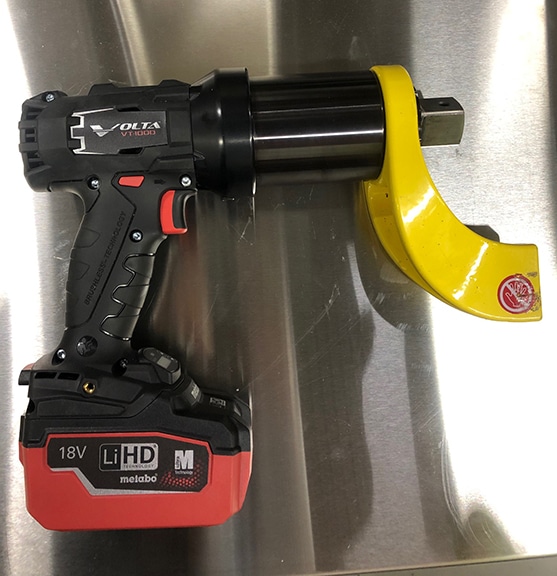
Electronic
“Electronic” torque multipliers typically include 2 distinct types: electric & battery powered. A power source can greatly reduce the amount of effort required from a human operator. Think of the difference in using a screwdriver verses a powered drill. However, with this advantage comes the challenge of finding electricity to either charge or power the tool. Typically, there is less variance in price & size for the electronic torque multipliers than with their manual counterparts.
The battery powered torque multiplier is the most popular choice, as it enables convenient & efficient high torque capability. As long as the batteries have been sufficiently charged, or replaced often, operators can easily carry this electronic multiplier in the field.
The electric powered torque multiplier delivers consistent power. Electric multipliers give operators the confidence to know they can provide high torque for an extended amount of time, without losing any power. Users do not have to remember to charge their equipment, or worry if the batteries will last until the job is complete. However, access to electricity is required, and the length of the cord determines mobility for the operator.
Mechanical or Manual
The mechanical or manual torque multipliers enable operators to use higher torque in tight spaces where a larger wrench may not be an option. Manual torque multipliers are available in a wide range of sizes. Because of this, the price point varies greatly, ranging from around $300 to over $20,000. The manual torque multiplier is the most flexible option, as it doesn’t require charging, electricity, or compressed air to function.
Torque Multiplier Maintenance Tips:
Keep your equipment clean
Remove grease, dirt, or other debris early, before it causes an issue. The Michelli Weighing & Measurement service team cleans & lubricates torque multipliers during inspections to help customers achieve the longest possible usable life.
Regularly inspect equipment for damage
Inspect the square drive of the torque multiplier for damage frequently. Occasionally, square drives break and require repair from an authorized service provider like Michelli Weighing & Measurement.
You should also regularly inspect the gear ratio teeth for wear down. These teeth allow users to dictate the output torque, so wear on the gear teeth could prevent the multiplier from functioning properly. Worn gear ratio teeth can and should be replaced by a qualified professional.
Store your equipment in the original case provided by the manufacturer
Store your torque multiplier in its original case, which is designed specifically to protect the equipment from drops, rust, buildup or other damage.
Consider having your multiplier calibrated by a service provider annually
Most manufacturers recommend annual calibration for torque multipliers. Of course, operators who utilize their torque multiplier more often may consider more frequent calibration a better choice. Calibration is the best way to ensure equipment remains within tolerance, which helps keep operators safe during use.
Ready to purchase a torque multiplier?
Contact your local Michelli Weighing & Measurement office today to purchase a torque multiplier. Not sure which type you need? Our experts are here to help. Give us a call to discuss your application and your environment, and our product specialists can help you find the right equipment for the job.
The Michelli service team also provides torque multiplier calibration and repair.

